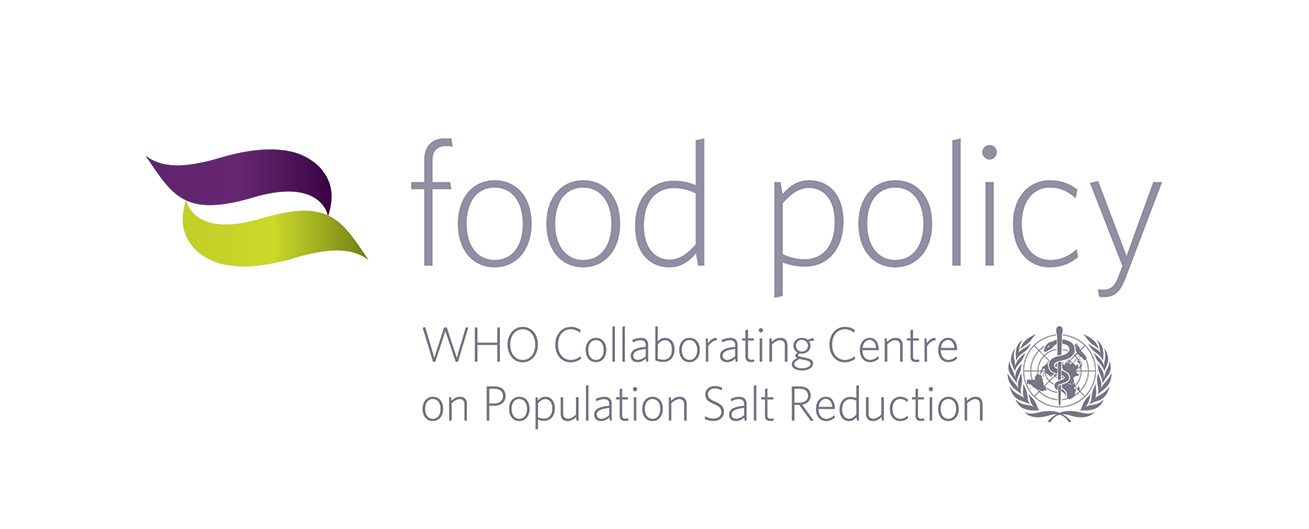
World Health Organization Collaborating Centre for Population Salt Reduction (WHO CC SALT)

The World Health Organization recognises salt reduction as a cost-effective intervention for reducing the burden of ill-health around the world. Member States at the 2011 United Nations High Level Meeting on NCDs agreed a global target of a 30% reduction in mean population intake of salt/sodium by 2025.
The World Health Organization Collaborating Centre for Population Salt Reduction (WHO CC SALT) was established in March 2013 to support Member States to meet the new targets and has now been re-designated until 2020. The terms of reference of WHO CC SALT include:
- Provide expert advice to WHO on development of tools for population salt reduction strategies;
- Undertake research and build research capacity in all aspects of salt reduction;
- Support and increase the capacity of WHO and Member States in the development, implementation, monitoring and evaluation of salt reduction strategies;
- Support and increase the capacity of WHO and Member States in the development of effective mechanisms for engaging the food industry on food reformulation and monitoring changes in the food supply.
On-going research projects on salt reduction:
- Action on salt China: The aim of is to develop and implement a comprehensive and sustainable salt reduction program, especially focusing on home cooking, and restaurant and pre-packaged foods. The goal is to achieve a 15% reduction by 2021 and 30% reduction by 2025. Read more.
- Reducing sodium consumption through behaviour change in India: The aim is to develop a community based behavioural change intervention focused on salt reduction delivered at the household level by Accredited Social Health Activists, who are frontline community based health workers, and test the feasibility, effectiveness, and cost in at least one district in India covering a population of roughly 100,000 for scaling up the intervention in India. Read more.
- Reducing salt consumption in Vietnam: The project will assess consumer acceptability, market feasibility and the cost-effectiveness of introducing multiple salt substituted foods in Vietnam and aims to provide insights for scaling the intervention to a national level through generating research evidence and collaboration with researchers, policy makers, industry, and the community. Read more.

























